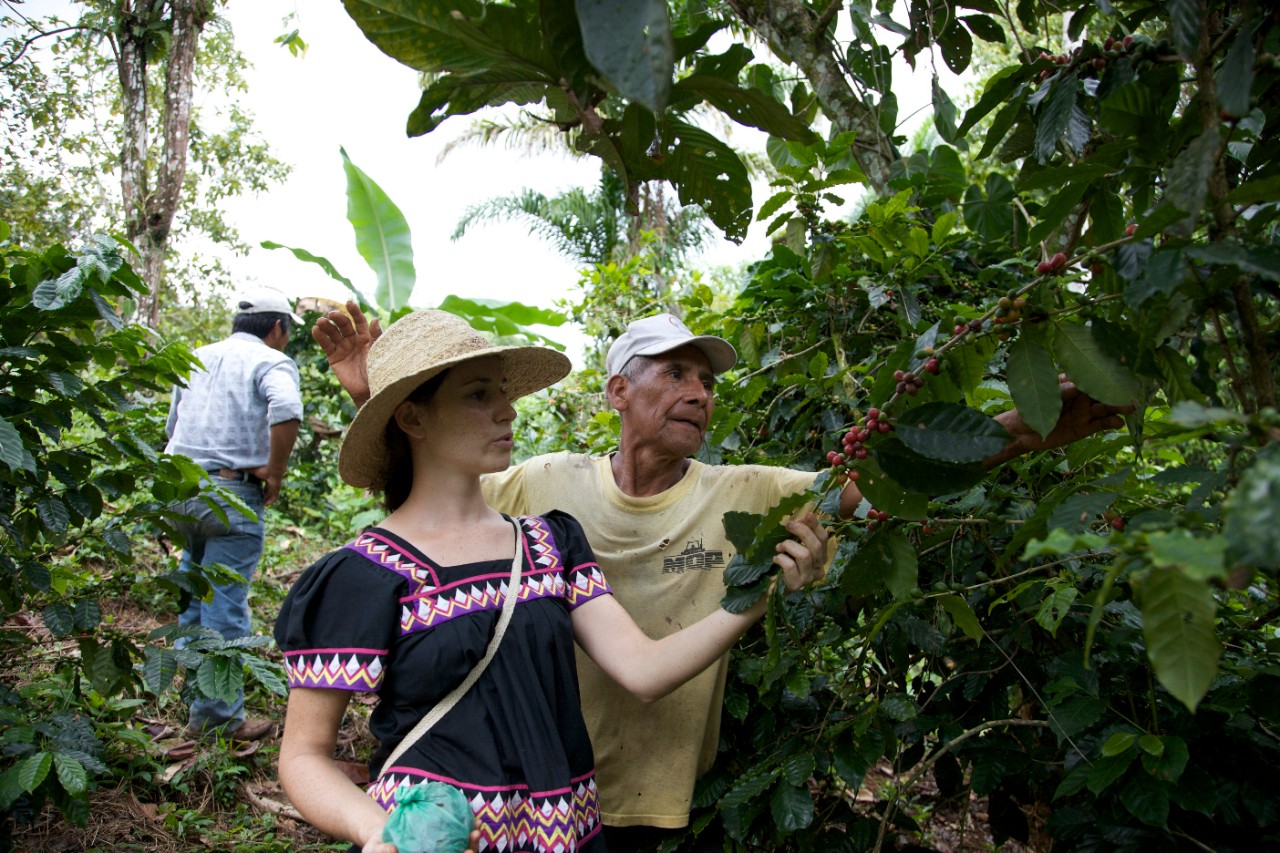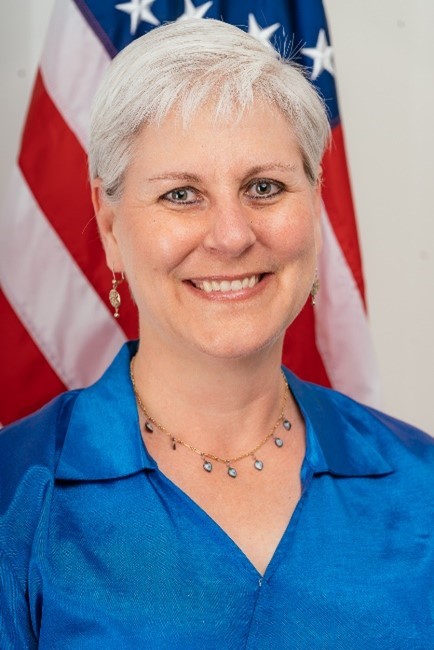
Kate Pongonis, former UMI fellow, shares lessons from the Peace Corps
Kate Pongonis (JD’97) is a proud UC Law alumna. A former Urban Morgan Institute for Human Rights Fellow, Pongonis spent her professional career overseas as a state department foreign service officer, working in countries such as China, Ethiopia, Venezuela, and South Korea among many others. She first developed a passion for public service during her years as a Peace Corps volunteer. Pongonis shares her thoughts on the importance of the Peace Corps, her work with the organization, and its impact on United States’ foreign policy. Read her personal account below.
The Peace Corps at 63 and Going Strong!
March 1 is an historic day in the annals of the Peace Corps. Sixty-three years ago on that date, President John F. Kennedy took a first step toward fulfilling a key campaign pledge when he signed Executive Order 10924, providing for the establishment, functions, and initial financing to launch this new, innovative program. Over six decades later, the Peace Corps is still going strong!
I was an agricultural extension volunteer in the highlands of Ecuador from 1992 to 1994 where I worked with subsistence farmers on agro-forestry and other soil conservation practices, taught environmental education, created organic demonstration gardens, and supported early childhood nutrition programs. The Peace Corps taught me the importance of cross-cultural communication, to work in a community to identify and prioritize needs, and to lead by example. I brought my experiences home to share with United States audiences the importance of understanding and interacting with our foreign neighbors and partners. This is the third goal of the Peace Corps and something I have brought to bear in volunteer activities mentoring students considering international careers, leading community environmental projects, and in advocating for and representing new immigrants in the United States.

Peace Corps volunteers working in Central America./ Photo courtesy of Peace Corps
On March 7, 2024, I will be heading to Capitol Hill, joining over 100 Peace Corps supporters from around the country, to make the case to Congress that Peace Corps service is as relevant and critical now as it was in 1961. Not only is the Peace Corps still needed today, but it is also a time when the Peace Corps is wanted. At the request of host countries, volunteers have returned to virtually all of the nearly 60 countries which had Peace Corps programs prior to the COVID-19 pandemic. While many of these countries are seeking additional volunteers, the agency also has requests for programs from at least 13 additional countries.
Currently, more than 2,400 volunteers are on the job, working with counterparts in the fields of agriculture, community economic development, education, environmental protection, health, and youth development. With adequate funding, the Peace Corps projects it could have more than 5,000 volunteers back in the field. But this will require fellow Americans to answer the call to service. As with the military and domestic service programs, the supply of Peace Corps volunteers is not currently keeping pace with the demand. It will also require Congress to act to welcome and honor a new generation of volunteers by prioritizing Peace Corps funding, passing reauthorization legislation, and embracing the Peace Corps as an important and indispensable component of our foreign assistance and national service agenda.

Kate Pongonis '97/ Photo: provided
Peace Corps’ call to service doesn’t end when volunteers return from overseas. To the contrary, returned peace corps volunteers (RPCVs) are motivated, passionate individuals who contribute an often unnoticed, under-appreciated domestic dividend to communities around the country. A 2023 survey on the domestic benefits provided by RPCVs found that they are three times more likely to volunteer than the average American. Eighty-six percent of RPCVs said they continued to volunteer after Peace Corps, and 67% of those respondents have served in leadership positions within various organizations. Personally, I continued public service as a U.S. diplomat and have also continued to seek ways to contribute to my community through volunteer efforts that draw on language and cross-cultural skills honed during my two years of Peace Corps service.
When I go to Capitol Hill on March 7, I will advocate for the passage of the bipartisan Peace Corps Reauthorization Act (S. 1203; H.R. 1273). While Congress first authorized the Peace Corps in 1961, it has been more than twenty years since Congress last passed a comprehensive reauthorization to update and reform Peace Corps policies. This legislation provides several volunteer health and safety improvements, further protects volunteers from recrimination or reprisal, expands opportunities for the next generation of volunteers to continue service through federal employment, and more. I will also urge an increase in funding that has lagged since 2016 and has not kept pace with inflation. Most importantly, I plan to emphasize to members of Congress the value of Peace Corps service to the people of developing nations, to United States foreign policy, and to our domestic community of compassionate citizens who prioritize service. As Coretta Scott King said, “The greatness of a community is most accurately measured by the compassionate actions of its members.” I hope our advocacy in Congress and in U.S. schools and communities will serve to light this passion and drive to serve that motivates so many current and returned Peace Corps volunteers!
-Kathryn
About Kate Pongonis, UC Law grad
Kathryn (Kate) Pongonis served as an agricultural extension volunteer in the highlands of Ecuador from 1992-1994. This experience was an impetus for a lifetime career overseas. She is a recently retired foreign service ffficer with the United States Department of State. Pongonis joined the State Department in 1999 and has served in overseas postings in Santo Domingo, Dominican Republic; Beijing, China (two tours); Chengdu, China; Addis Ababa, Ethiopia; Pretoria, South Africa; Caracas, Venezuela; and Seoul, South Korea. She had two domestic postings in Washington, D.C. in the Bureau of Population, Refugees, and Migration and, in her final assignment, as a Senior Advisor in the Office of Global Criminal Justice. Prior to joining the State Department Pongonis was a Hispanic Outreach Attorney with the Atlanta Legal Aid Society in Atlanta, Georgia. Soon after her retirement, she returned to the State Department in a part-time retiree status, rejoining the Bureau of Population, Refugees, and Migration to work on the Lawful Migration Task Force and the Safe Mobility Office initiative in Latin America.
Pongonis is actively engaged in her community as a member of a neighborhood board of directors and the Dean's International Advisory Council at the College of Law. She is currently volunteering to help a new immigrant family settle into the United States. Pongonis graduated from the College of Law in 1997 and was a fellow in the Urban Morgan Institute for Human Rights. Her undergraduate degrees are in Spanish and Economics from Denison University. She is proficient in Mandarin Chinese, Korean, and Spanish.
Lead photo: Volunteer works in the gardens of Asia with the local community. Photo courtesy of the Peace Corps.
Tags
Related Stories
WVXU: OKI Wanna Know why does Kentucky own the Ohio River?
April 22, 2021
UC Law's Professor Brad Mank answers questions from OKI Wanna Know about the border between Ohio, Kentucky and Indiana and what the Supreme Court says about it.
Law student named Best Oralist at international moot competition
March 30, 2021
Third-year law student Greg Magarian was named "Best Oralist" at international arbitration competition.
US News rankings reflect positive track
March 30, 2021
UC Law's US News rankings continue to improve.
